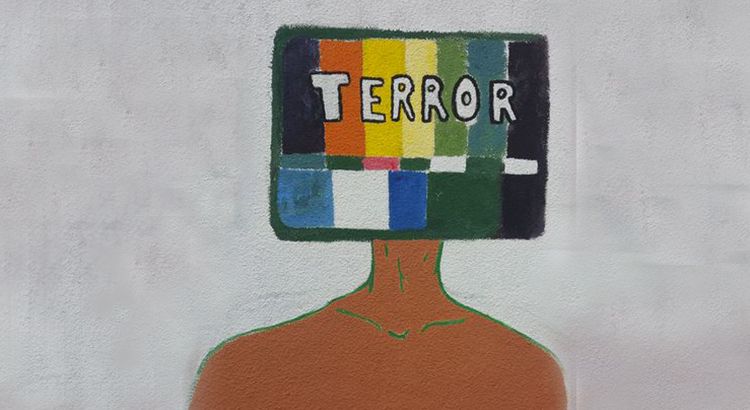Schlagwort: Extremismus
What should we call those who stormed the US Capitol on January 6 of this year? Struggles over possible labels matter: What one calls a certain group has implications for the ways in which one can and will engage with them. The polarization of Americans when it comes to classifying the attacks is indicative of a larger dilemma: how should one respond to the rioters and their demands – and is that even an option?
Let’s play prevention: Can P/CVE turn the tables on extremists’ use of gamification?
In the wake of the attacks in Christchurch, El Paso and Halle, the so-called ‘gamification of terror’ has made headlines and sparked academic interest in the potential role of gamification in radicalisation processes. Most recently, the Radicalization Awareness Network (RAN) has discussed both videogames and gamification as potential facilitating factors of radicalisation in the EU. This blog article is based on the new RAN Paper “The Gamification of Violent Extremism & Lessons for P/CVE”.
Missing an epic story: Why we are struggling to counter extremists’ utopian narratives
Contrary to popular opinion, extremist communication is not simply based on hatred and calls for violence. While beheading videos or livestreamed shootings may generate attention, displays of violence alone are an insufficient basis for an extremist ideology and claims of legitimacy. Utopian narratives – visions for the perfect society – are an indispensable element of propaganda efforts. Without detailing what one is fighting for, an essential part would be missing from the web of extremist ideological communication. While the last years have seen an increase in narrative campaigns designed to delegitimize extremist ideologies and provide alternative worldviews, pro-democracy narratives struggle with responding to the utopian visions propagated by extremist actors.
Evaluation im Kooperationskontext. Chancen zur Gestaltung der Zusammenarbeit von Sicherheitsbehörden und Zivilgesellschaft
Ende 2020 verabschiedete der Kabinettausschuss zur Bekämpfung von Rechtsextremismus und Rassismus einen umfangreichen Maßnahmenkatalog, in dem auch eine Stärkung der Zusammenarbeit zwischen Sicherheitsbehörden und Zivilgesellschaft empfohlen wird. Obwohl bereits einige erfolgreiche Ansätze existieren, scheint es an dieser zentralen Schnittstelle der Extremismusprävention weiterhin Entwicklungsbedarf zu geben. Innovative Evaluationsvorhaben können hier einen wichtigen Beitrag leisten, indem sie dabei helfen, bestehende Initiativen zu stärken, mögliche Hürden zu überwinden und gleichzeitig den nötigen Raum zur klaren Abgrenzung zwischen den Akteursgruppen zu bieten.
Mehr als Prävention. Politische Bildung und Extremismusprävention: Schnittmengen und Herausforderungen
In der öffentlichen Diskussion extremistischer Übergriffe und Terroranschläge werden oft hohe Erwartungen an die politische Bildung als ein Instrument der Prävention formuliert. Dabei stellt sich jedoch die Frage, was politische Bildung leisten kann und soll. Politische Bildung bietet mehr als eine Handreichung zum Umgang mit aktuellen Herausforderungen durch politische Extremismen. Ihre Kernaufgabe ist es, die aktive Teilhabe aller Menschen am politischen und gesellschaftlichen Leben zu unterstützen. Dabei leistet sie auch einen Beitrag zur Prävention. Politische Bildung und Prävention bilden keine Einheit, erzeugen aber gemeinsam einen Mehrwert für eine sich vor menschen- und demokratiefeindlichen Extremismen schützende Gesellschaft.
Radikalisierung und Terrorismus – in Buchform unter den Weihnachtsbaum?
Die Themen Extremismus, Radikalisierung, Terrorismus und Terrorismusbekämpfung sind aus der gesellschaftlichen Debatte in Deutschland nicht mehr wegzudenken. Diese findet oftmals in einem Modus der Aufgeregtheit statt, sodass wichtige wissenschaftliche Erkenntnisse, Differenzierungen und Querverbindungen sowie kritische Blickwinkel auf diese Phänomene nicht immer angemessen berücksichtigt werden. Die Forschungsgruppen Radikalisierung und Terrorismus stellen deshalb eine kleine Liste von lesenswerten Werken im Feld zusammen. Und während es zunächst so scheinen mag, als wären die Themen wenig für die besinnliche Zeit geeignet, so sprechen sie doch große Herausforderungen gesellschaftlichen Wandels zugänglich an – und tragen somit zu besser informierten Debatten bei: ein Geschenk für alle. Wir wünschen eine entspannte Zeit mit spannenden Büchern!
Who are these “Islamists” everyone talks about?! Why academic struggles over words matter
Politicians, the media, and social media users alike have framed recent attacks in Europe as instances of “Islamist” violence. The current debate often remains superficial and uses the umbrella term of “Islamism” to describe a diverse spectrum of actors, ideologies, and activities. Notably, conflating Salafi jihadism with other manifestations of Islamism risks consolidating a unified enemy image of “the Islamists” – or, even worse, Islam. This blogpost aims at disentangling these labels, in particular pointing out two discursive pitfalls: the securitisation of Islam and Muslim communities, and the equation of Islamism with terrorism.
Macron’s plan for fighting Islamist radicalization – and what Germany and other European countries should and shouldn’t learn from it
On October 2nd French president Macron presented a five-point plan to address Islamist radicalization. The long awaited speech sparked debates in France and beyond. In Germany, some called it “historic” and a “wake-up call”, demanding a similar set of initiatives and central speech for the German debate. This is problematic for two reasons: first, while many measures in Macron’s plan are promising, others and the overall framing of the speech can prove counterproductive in terms of stigmatization and securitization. Second, the French centralist approach cannot and should not be transferred to the German federal and civil society-based system of preventing extremism.
Counter-narratives – curse or blessing?
Taking stock of the increased spread of extremist narratives – especially in social media – the search for appropriate counter-measures intensifies. Consequently, the formulation and dissemination of so-called counter-narratives is often discussed as one possible approach to weaken extremist influence. While there are good reasons in favor of counter-narratives, they also come with risks and uncertainties. This article outlines essential pros and cons for their use in social media and provides insights into the current state of research on the effects of counter-narratives. Finally, it makes a proposal for a balanced approach: Counter-narratives may not be the only cure for extremism, but can serve as an effective tool for prevention and de-radicalization.
Social Media as a Mirror of External Circumstances: Insights into the Perception of a Radical Group
Radicalisation processes take place in a field of tension between the actor and the outside world. External reactions and circumstances can have a supportive but also a rather negative and escalating effect on the dynamics of group development, depending on how they are perceived. Radical groups often react to circumstances in the outside world, incorporate them into their own discourse and provide their followers with a processed interpretation of them. This can be observed particularly well on social media. Within the scope of a thematic content analysis, we analysed how external circumstances were received within the community and what influence they had on the dynamics of the group Millatu Ibrahim.








